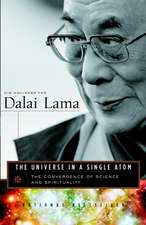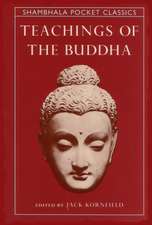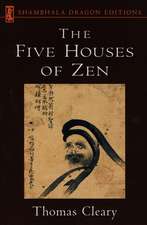Nothing: Three Inquiries in Buddhism: TRIOS
Autor Marcus Boon, Eric Cazdyn, Timothy Mortonen Limba Engleză Paperback – 16 oct 2015
Though contemporary European philosophy and critical theory have long had a robust engagement with Christianity, there has been no similar engagement with Buddhism—a surprising lack, given Buddhism’s global reach and obvious affinities with much of Continental philosophy. This volume fills that gap, focusing on “nothing”—essential to Buddhism, of course, but also a key concept in critical theory from Hegel and Marx through deconstruction, queer theory, and contemporary speculative philosophy. Through an elaboration of emptiness in both critical and Buddhist traditions; an examination of the problem of praxis in Buddhism, Marxism, and psychoanalysis; and an explication of a “Buddhaphobia” that is rooted in modern anxieties about nothingness, Nothing opens up new spaces in which the radical cores of Buddhism and critical theory are renewed and revealed.
Preț: 209.77 lei
Nou
Puncte Express: 315
Preț estimativ în valută:
40.14€ • 41.76$ • 33.14£
40.14€ • 41.76$ • 33.14£
Carte tipărită la comandă
Livrare economică 14-28 aprilie
Preluare comenzi: 021 569.72.76
Specificații
ISBN-13: 9780226233260
ISBN-10: 022623326X
Pagini: 296
Dimensiuni: 140 x 216 x 23 mm
Greutate: 0.32 kg
Ediția:1
Editura: University of Chicago Press
Colecția University of Chicago Press
Seria TRIOS
ISBN-10: 022623326X
Pagini: 296
Dimensiuni: 140 x 216 x 23 mm
Greutate: 0.32 kg
Ediția:1
Editura: University of Chicago Press
Colecția University of Chicago Press
Seria TRIOS
Notă biografică
Marcus Boon is professor of English at York University in Toronto. Eric Cazdyn is the Distinguished Professor of Aesthetics and Politics at the University of Toronto. Timothy Morton is the Rita Shea Guffey Chair in English at Rice University in Houston, Texas.
Recenzii
“Nothing is wide-ranging, and the essays are rich and well researched, drawing on all sides, including analytic philosophical approaches to Buddhism.”
“The reader will delight in two important aspects of Nothing: a multitude of contemporary Buddhist responses to the great political and social changes that have affected Asian countries—imperialism, colonialism, communism, corporate capitalism—and rigorous elaboration of Lacanian psychoanalysis with Buddhist psychology. This book is exceptional.”
“I have contemplated and endured ‘nothing’ for so long that it did not seem right to break my practice or offer other readers something like insight, possibly a moment of sense making and affirmation. But I break out of my trance to assert the emphatic necessity of this book, so erudite without loading us down, relentless in its ability to resignify. Sassy, brilliant, a genuine engagement with and of thought, this work tunes us to a thrilling, endorphinating way of thinking: my drug of choice.”
“A serious and significant engagement with critical theory and Buddhism.”
“Nothing’s overarching contribution clarifies the problematics of Buddhist critical theory as the intra-active, performative effects of a mutualizing ethico-ontoepistemology. This invites critical mindfulness of the immediate existential-material circumstances that may at once inspire and constrain any given attempt/location of Buddhist critical theory.”











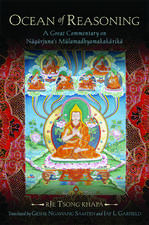
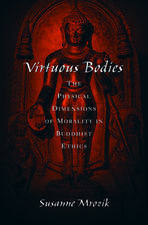
![The Way of Zen =: [Zendao]](https://i0.books-express.ro/bt/9780375705106/the-way-of-zen.jpg)


